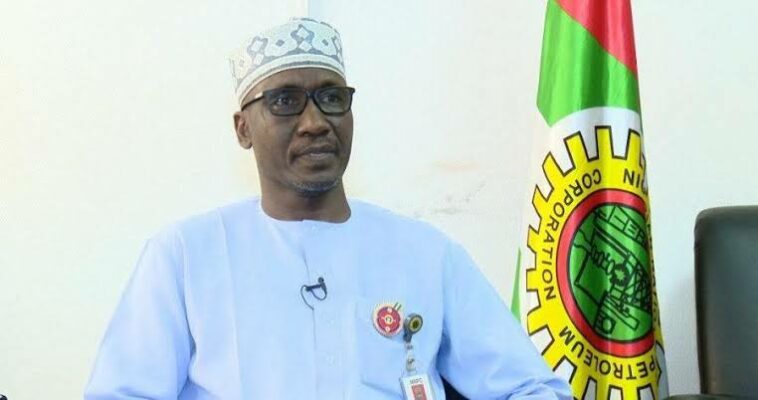The Nigerian National Petroleum Company Limited (NNPCL) has clarified that the recent surge in the price of petrol was as a result of market forces.
The Group Chief Executive Officer (GCEO) of the NNPCL, Mr Mele Kyari, explained that this increase was due to the market regulating itself.
Kyari further emphasized that the price fluctuation was not caused by a shortage of petrol and assured that pricing will continue to vary based on international market activities.
He said:
ATTENTION: Click “HERE” to join our WhatsApp group and receive News updates directly on your WhatsApp!
“I don’t have the details this moment. We have the marketing wing of our company. They adjust prices depending on the market realities. This is really what is happening; this is the meaning of making sure that market regulate itself so that prices will go up and sometimes they will come down also. This is what we have seen and in reality this is what the market works.
READ ALSO: FG Backtracks on Subsidy Palliative, Mulls Increase in Minimum Wage
“There is no supply issue completely. When you go to the market, you buy the product; you come to the market you sell it the prevailing market prices. Nothing to do with supply. We don’t have supply issues. There is robust supply. We have over 32 days of supply in the country.
“What I know is that the market forces will regulate the market. Prices will go down sometimes; sometimes it will go up, but there will be stability of supply and I’m also assuring Nigerians that this is the best way to go forward so that we can adjust prices when market forces come to play.
“I don’t have the details this moment, but I know that our marketing wing acts just like every other company in this business. I know that a number of companies have imported petroleum products today. So, many of them are on line. I’m sure my colleague would confirm this.
“Market forces have started to play; people have started having confidence in the market. Private sector people are importing products, but there is no way they can recover their cost if they cannot take market reflective cost.”
The Chief Executive Officer, CEO of the Nigerian Midstream and Downstream Petroleum Regulatory Authority (NMDPRA), Farouk Ahmed also provided a clear explanation for the recent price increase in petrol.
According to Ahmed, the rise in crude prices has been a significant factor contributing to this development.
Also, he highlighted the impact of changes in freight prices, as well as other ancillary costs that importers face during the distribution process.
He said:
“As a regulator, I told you back in May that we are not going to be setting price. The market will determine itself and as you saw back in early June when prices came out, it was based on the cost of importation plus other logistics of distribution and of course the profit margin by the importer.
“This market is deregulated; it is open to all participants. As I mentioned also yesterday when I was in Lagos, we have about 56 marketing companies that applied and obtained licenses to import. Out of those, 10 of them have indicated to supply within the third quarter, which is July, August, September.
“Already, we received some cargoes from these markers: Prudent Energy, AYM Shafa and Emadeb. Emadeb Cargo is arriving tomorrow. So, this is just an encouragement to see that the market is liberated and everyone is free to import so long as you are working within the framework, especially in terms of quality. But to pricing, as a regulator, we are not going to put a cap on the price because we are not part of those importing. We are not a marketing company; we are just a regulator.
“So, when you say market forces are working, basically, what it is that you buy; you consider the price of crude going up. A couple of weeks ago, the price of crude was hovering around $70/barrel. Now it’s hovering around $80/barrel.
“So, the crude price also drives the product price. You know, because the importers are importing, they are basing it on the cost of importation plus the freight and other cost elements in terms of local distribution.”



